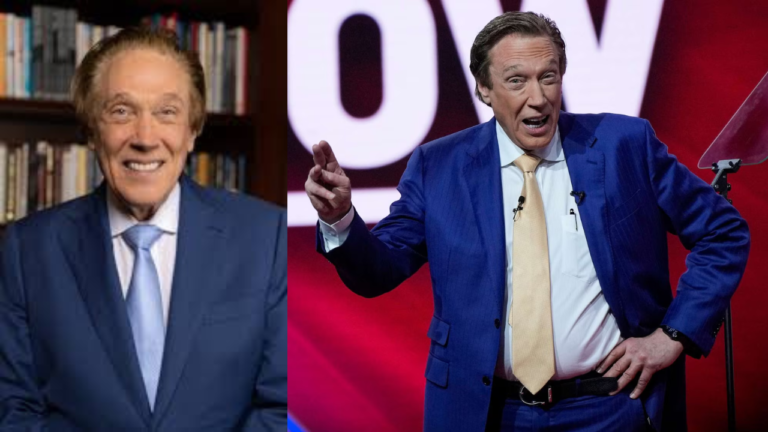Perry Johnson is a multifaceted individual who has gained prominence as a business leader and political figure. His journey from building a successful quality control business to running for public office illustrates his drive to influence the corporate world and American policy. Johnson, often referred to as a “quality guru,” has left a notable mark on industries such as automotive, aerospace, and food safety while advocating for conservative values in his political endeavors. This article delves into his business achievements, political aspirations, and the impact he hopes to have on American governance.
Background and Early Career
Perry Johnson’s career began in business long before he ventured into politics. Born in 1948, Johnson holds a statistics and quality control background, which later shaped his professional trajectory. His early professional work focused on establishing standards and frameworks to help businesses achieve higher operational efficiency and quality assurance. In 1994, he founded Perry Johnson Registrars, Inc., a firm dedicated to assisting companies to meet international quality standards, such as ISO 9000. This business success gave Johnson the resources and credibility to expand his influence in the U.S. and globally.
Business Leadership and Impact
Johnson’s business empire grew as he specialized in certifying and auditing companies across various sectors. His firm became well-known for its rigorous standards in the automotive and cybersecurity industries, offering training and certification services that helped companies improve their production quality. One of his most significant contributions was the application of statistical process control techniques to the American automotive industry, which revitalized the reputation of U.S.-made vehicles by reducing defects and improving product reliability.
His expertise in quality management made him a sought-after consultant, and his business flourished by addressing growing demands for quality certifications globally. Perry Johnson Registrars quickly expanded, becoming a leader in its field with a reported annual revenue of over $100 million and a significant profit margin. This success gave Johnson the wealth and the platform to influence broader economic discussions.
Political Ambitions
Johnson turned his attention to politics with a successful business career behind him. His first foray into the political arena came in 2022 when he ran for the Republican nomination for Michigan governor. Unfortunately, his campaign was cut short due to issues with fraudulent signatures on his ballot petition, leading to his disqualification from the race. Despite this setback, Johnson remained undeterred, setting his sights on a higher office by announcing his candidacy for the 2024 Republican presidential nomination.
Johnson’s political platform reflects his business values: fiscal responsibility, deregulation, and economic growth. His campaign centered on a policy he called the “Two Cents Plan,” which proposed cutting federal discretionary spending by 2% each year. This idea stems from his belief that efficient management of government resources, much like in business, would help reduce the national debt and stimulate economic growth. He also advocated simplifying the tax code and supporting small businesses by reducing regulatory burdens.
Key Political Issues and Views
Johnson’s political views are grounded in his conservative ideology, influenced by his business background. Here are some of his critical stances on important issues:
- Economy and Budget: Johnson’s “Two Cents Plan” exemplifies his belief in reducing government spending to tackle the national debt. He supports cutting taxes and simplifying the tax system to foster economic growth.
- Healthcare: Johnson believes in a market-based approach to healthcare reform, focusing on reducing costs through competition and economic incentives. He has suggested stabilizing Medicare and Social Security by incentivizing work and bolstering immigration.
- Abortion: Johnson is pro-life and supports states’ rights on abortion laws. During his 2022 gubernatorial campaign, he did not rule out the possibility of restricting abortions even in cases of rape or incest, stating that “two wrongs don’t make a right.
- Education: A proponent of school choice, Johnson has called for greater access to charter schools and the abolition of the Department of Education, advocating for a more localized approach to education.
- Climate and Energy: Johnson supports domestic energy production, including fossil fuels and nuclear power. He has opposed abrupt discontinuations of fossil fuels, preferring a gradual shift towards clean energy.
Challenges and Criticisms
Like many political newcomers, Johnson has faced challenges related to his campaigns. His gubernatorial run in Michigan was marred by disqualification due to fraudulent signatures, a controversy that tarnished his political entry. His 2024 presidential campaign also struggled to gain momentum, as he failed to meet the polling and donor thresholds set by the Republican National Committee. Johnson’s unconventional fundraising tactics, including offering $1 t-shirts and $10 gas cards in exchange for campaign donations, garnered media attention but did not significantly boost his poll numbers.
Public Perception and Influence
Despite these hurdles, Johnson has earned a place in the conservative political landscape. His business success and policy ideas resonate with a segment of the Republican electorate that prioritizes fiscal conservatism and deregulation. However, his lack of political experience and the controversies surrounding his campaigns have limited his broader appeal. Johnson’s decision to endorse Donald Trump after suspending his 2024 presidential bid reflects his alignment with Trump’s brand of populist conservatism.
Future Prospects
Although Johnson suspended his 2024 presidential campaign, his influence in political circles may continue to grow. His business acumen and experience in streamlining processes could keep him relevant in discussions about government efficiency and economic reform. Should he choose to run for office again, his ability to finance his campaigns and persistence could make him a formidable candidate in future elections.
Conclusion
Perry Johnson’s transition from business to politics reflects his desire to apply corporate efficiency to government operations. While his political career has encountered setbacks, his business legacy as a quality control pioneer remains influential. Johnson’s dedication to fiscal responsibility and economic growth continues to shape his political vision, and his future in American politics, though uncertain, holds potential. Whether or not he secures public office, his contributions to business and political discourse will leave a lasting impression.


